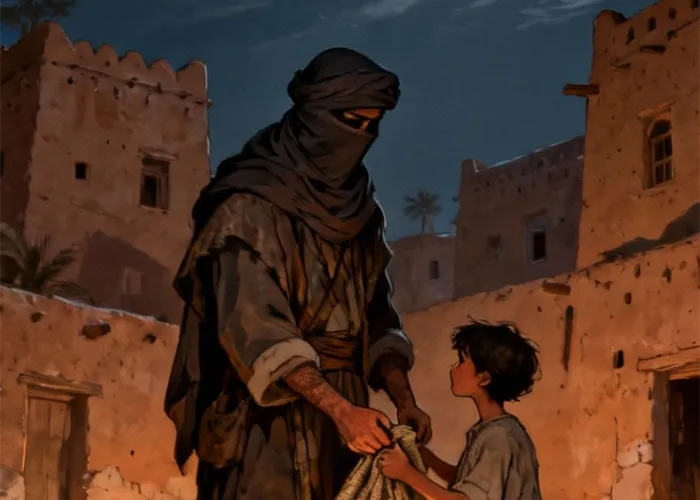Inspirational Tales – Volume02 Issue42
The Candle of Compassion
In the quiet streets of Kūfa, when night had fallen and the city slept, a lone figure would move through the darkness. His steps were gentle, his hands full of food, and his shoulders bent beneath the weight of sacks of grain. No one knew his name, for he hid his face beneath a simple cloak. But wherever he went, the hungry slept with bread beside them, and the orphans woke to warmth and joy.
One night, a man followed this mysterious figure, curious to see who he was. The stranger stopped at a poor woman’s home. Inside, her children cried from hunger. With tenderness, he knelt down, lit a small fire, and cooked the food himself. He whispered to the children, “My little ones, forgive ʿAlī for not coming sooner.”
The man watching trembled. It was the Commander of the Faithful himself — the Caliph of the Muslims, the successor of the Prophet ﷺ. The one whom kings respected and armies obeyed was spending his nights in secret service to the needy.
When the woman thanked him, not knowing who he was, he only said, “Thank Allah, not me.”
Days later, when she came to the mosque and saw the same man on the pulpit, she wept in awe — for the ruler of Kūfa was the same humble soul who had fed her children in the darkness.
Imam ʿAlī (a) would say,
“How can I sleep with a full stomach, when there is a hungry soul in my city?”
He taught that leadership was not glory, but guardianship — not power, but mercy. Even while fasting, he gave his ifṭār to the poor, night after night, until Allah revealed:
“And they give food, in spite of love for it, to the needy, the orphan, and the captive, saying, ‘We feed you only for the sake of Allah; we desire from you neither reward nor thanks.’” (Qur’an 76:8–9)
Years later, when he was struck in the mosque, people found marks on his back from carrying food sacks. Those marks were the silent witnesses of his love for the forgotten.
He ruled with justice, but he conquered with kindness.
And to this day, the poor of Kūfa remember the man who came in the night — and left light where there had been hunger.
editor's pick
news via inbox
Subscribe to the newsletter.




